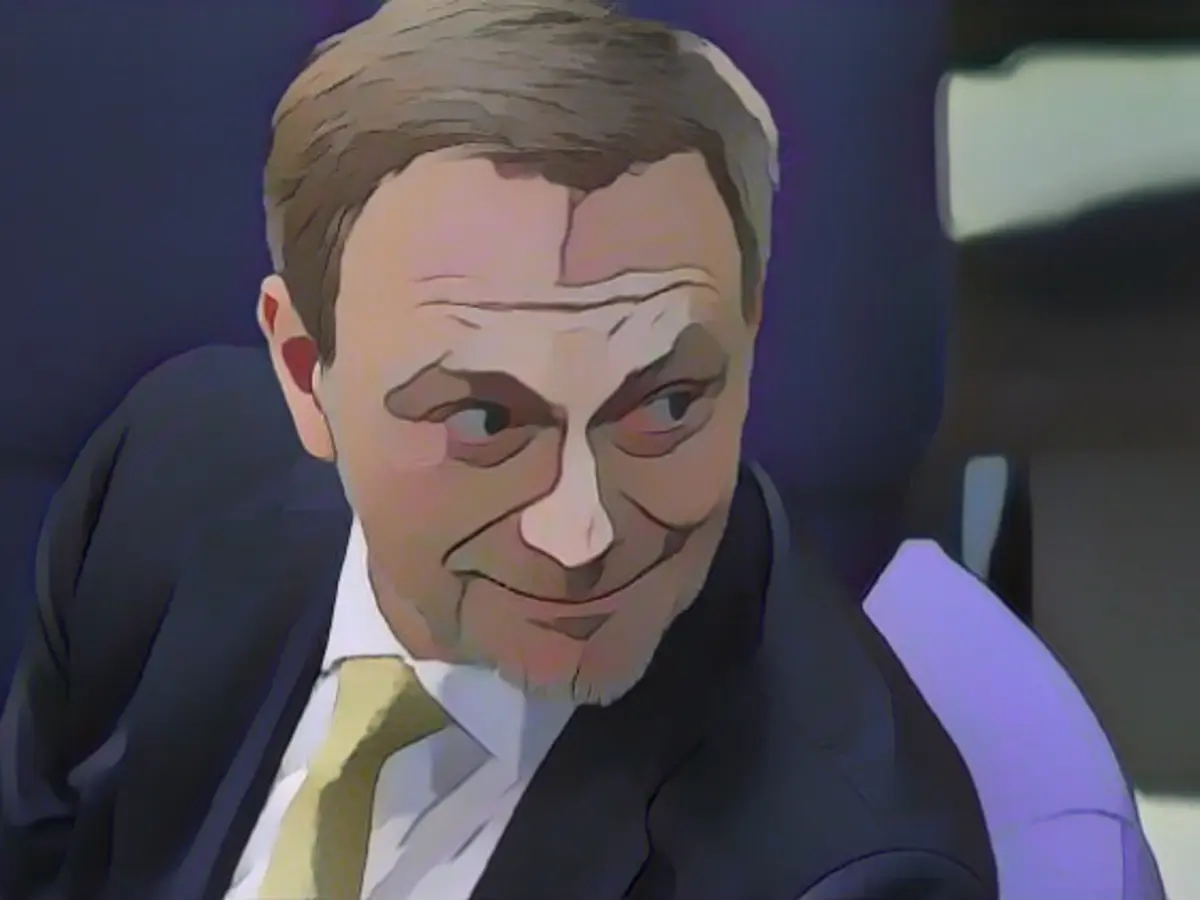Lindner calls for a cut in citizens' income
Unlike the SPD and the Greens, Finance Minister Lindner does not want to simply wave through the planned increase in public funding for 2024. In addition to social issues, he also sees potential savings in international aid and subsidies. However, he does not want to reveal which ones will be cut.
For the first time, Federal Finance Minister Christian Lindner has named specific areas for savings in order to close the gaps in the budget for 2024: "We will have to deal with three major cost blocks," said the FDP politician in an interview with the Funke newspapers. The federal government currently spends 45 percent of its budget on social welfare. "We will look at how we can become more accurate." For example, the aim here is to get people into work more quickly - and thus reduce social costs for the state. "For example, there is a job turbo for refugees from Ukraine," said Lindner.
The minister also announced a review of the regulations on the citizen's income: The inflation rate is currently developing much better than was forecast when the standard rate was set for 2024, he said. "In the upcoming review of the gap between wages and social benefits, we will therefore have to look at the adjustment procedure. After all, there must always be a noticeable difference between someone working and not working," said Lindner.
"International burden sharing could be fairer"
The FDP politician cited international aid as the second area where savings could be made: Germany is the leader in development cooperation and international climate financing. "We can stay in first place. But perhaps the gap to second place can be reduced," said Lindner. The goal could be a "fairer international burden-sharing".
Lindner also sees opportunities to make savings in government funding programs: "There are numerous subsidies that need to be questioned as to whether they are actually achieving their goals or have not fallen out of time." It is still too early to name individual programs. "Otherwise this will lead to a run on funding programs at the last minute." However, there will be no cuts in the area of defense: "The defense budget will remain untouched," explained Lindner.
"Union not in agreement on the debt brake"
Lindner did not want to completely rule out another suspension of the debt brake for 2024: In response to a question to this effect, the FDP politician said, "I am happy to listen to arguments." However, he was "not yet" convinced that a new suspension could be constitutionally justified. In his opinion, the situation on the energy markets as a result of the war in Ukraine no longer justifies an emergency situation. Therefore, the electricity and gas price brakes could also expire together with the economic stabilization fund on 31 December.
Lindner, on the other hand, rejected attempts by the CDU/CSU to call early elections: "This is no time for hasbardeurs," the Finance Minister told the Funke newspapers. He recommended that anyone flirting with government crises for party tactics should take a look at the Netherlands. There, the right-wing populists had become the strongest force in the parliamentary elections. In the traffic light coalition, everyone has "their own ideas of what is necessary". However, the three coalition partners are united by the responsibility to avert damage to the country and advance its modernization.
When asked whether Lindner would prefer to govern with CDU leader Friedrich Merz, who does not question the debt brake, the minister explained that it is still unclear what the CDU/CSU's overall position on the debt brake is. "I have the impression that the self-confident CDU state premiers are really poking fun at their party leader on this issue."
- Despite his opposition to expanding public funding for 2024, Finance Minister Christian Lindner acknowledges Germany's leading role in development cooperation and climate financing, indicating that potential savings could be made to achieve a "fairer international burden-sharing."
- In response to the planned increase in social welfare expenditures, Lindner suggested reviewing the regulations on the citizen's income, noting that the current inflation rate may require adjustments to ensure a noticeable difference between working and non-working individuals.
- In addition to international aid and citizen's income, Lindner also highlighted the need to critically examine numerous subsidies to ensure they are effectively achieving their intended goals and are not outdated, without revealing specific programs under review at this time.
Source: www.ntv.de








